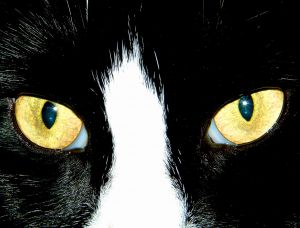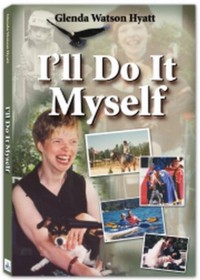When People Stare

(Photo credit: Marcel Hol)
Yesterday my friend and blogger extraordinaire Liz Strauss posed the question: What do you do when people are looking at you?”
Being in a wheelchair with an obvious physical disability, people look most times I head out my front door. People look because we are curious. We notice that which is different. I admit my head whipped around when passing a guy, wearing a business suit and carrying a briefcase, had a green spiky haircut. In a way, looking acknowledges one’s existence.
However, there is a point when a look becomes a stare. Mind you, not all stares are bad. In wonder, we stare at babies. In awe, we stare at the stars. In admiration, we stare at a person’s face.
Other times, staring can be intrusive, reduce dignity, and inflict shame. Stares “reinforce the strongly held notion that being different is somehow shameful, that being different is some how at odds with universal human experience.” (from Staring Back)
Eli Clare, poet and activist, eloquently shares her experience:
Gawking, gaping, staring: I ca*n’t say when it first happened. When first a pair of eyes caught me, held me in their vice grip, tore skin from muscle, muscle from bone. Those eyes always shouted, “freak, retard, cripple,” demanding an answer for tremoring hands, a tomboy’s bold and unsteady gait. It started young, wherever I encountered humans. Gawking, gaping, staring seeped into my bones, became the marrow. I spent thirty years, shutting it out, slamming the door. Thirty years, and now I am looking for lovers and teachers to hold all my complexities and contradictions gently, honestly, appreciatively.
What can you do when people stare?
- Take a deep breath and lift your head high. You have nothing to feel ashamed about.
- Look them straight in the eye and smile. When a smile begins creeping across their face, they become aware of their inappropriate behaviour. Occasionally this works beautifully and a connection is made without a word being uttered.
- Use my Mom’s line, “Take a photo. It’ll last longer.” With my speech, I haven’t used this strategy myself. Imagining the potential response makes me smile, though.
How do you feel when people look at you? When they stare? What do you tell children when they are hurt by others staring?
If you enjoyed this post, consider buying me a chai tea latte. Thanks kindly.
 Subscribe via RSS
Subscribe via RSS



